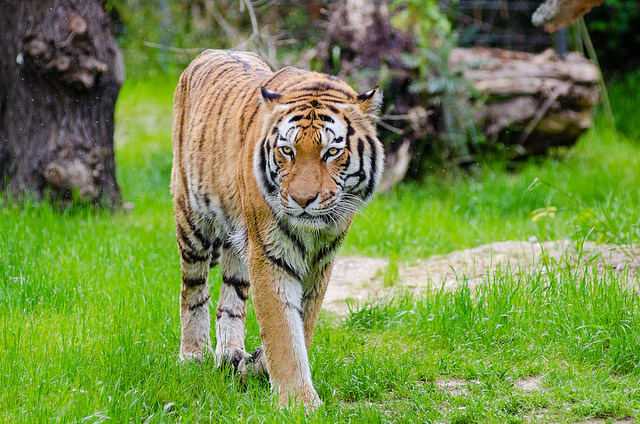In what conservationists are terming as a huge setback to efforts to protect wildlife, China has announced a reverse in its previous ban on wildlife contraband especially for tigers and rhinos.
The government of China this week announced it will again legalize trade in farmed tiger bone and rhino horn which are used in traditional medicine.
The State Council, China’s cabinet, said in a policy directive that it would legalize the use of rhino horns and tiger bones for “medical research or in healing,” but only by certified hospitals and doctors, and only from rhinos and tigers raised in captivity, excluding zoo animals.
China has had a 25-year-old ban in place preventing the import or export of these products. The World Federation of Chinese Medicine Societies, the body which determines what can be used in traditional medicine had also removed rhino horn and tiger bone from its list of products approved for use on patients but an underground practice remained.
Rhino horn is used in Chinese medicine to treat fevers, gout and food poisoning while tiger bone is said to boost health, cure a range of ailments and increase virility for men.
Now conservationists are worried that China’s u-turn on the ban will further frustrate the efforts to close the market for trade in wildlife contraband which has been the leading cause of killing wildlife. They say opening the market again could endanger the estimated 30,000 rhinos and 3,900 tigers surviving in the wild.
Leigh Henry, the director of wildlife policy at the World Wildlife Fund described the action by China as “very concerning”.
“WWF urgently calls on China to maintain the ban on tiger bone and rhino horn trade which has been so critical in conserving these iconic species. This should be expanded to cover trade in all tiger parts and products,” Henry said.
“This devastating reversal by China runs completely counter to the image of wildlife champion the world had come to expect with China’s ivory trade ban, which was such a positive development for the world’s elephants”.
There is a sharp increase in tiger farms in China and the Environmental Investigation Agency reported in 2013 that at least several thousand tigers were being kept at hundreds of farms across the country.
There are reports that China has started importing rhinos for potential farming. The traditional Chinese medicine industry is valued at more than $100 billion, with more than 500,000 medical practitioners, according to New York Times.
China was widely known to be a black market for wildlife parts which are either used as artefacts or for medicinal purposes. In 2016, along with the United States, China announced that it would ban the sale of ivory, a move that was applauded by anti-poaching campaigners.










